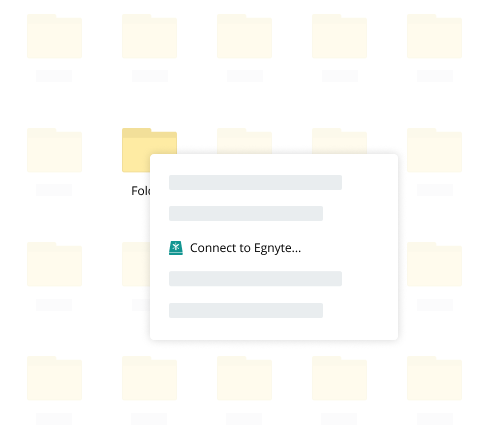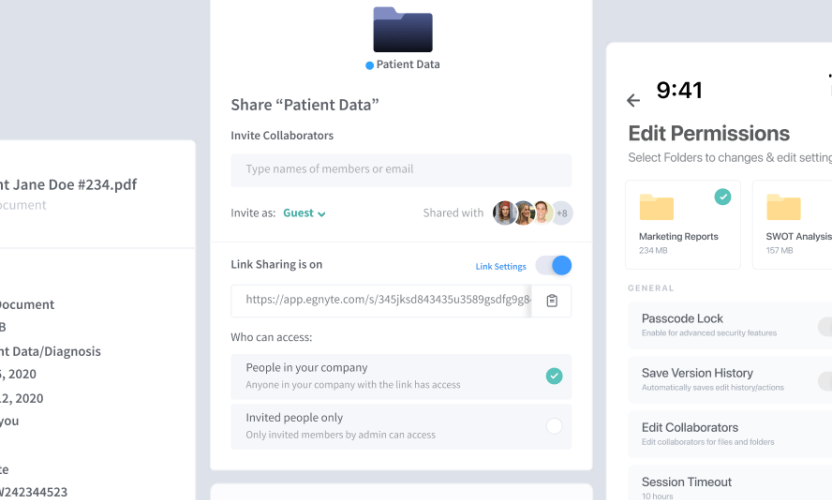
Connecting Local Folders for Extended Governance
The ability to connect your local folders to the Egnyte cloud is now as simple as two clicks with Desktop for Mac 3.9.0 and later. Windows users can expect a similar release for Desktop for Windows in January, but can continue to use connected folders through the process outlined here.
This feature syncs your key selected local folders to the cloud for faster load times and offline capability, as well as mobile and web access from anywhere. It makes no changes to your existing file structure and functionality, working in the background to automatically sync to Egnyte for your access and backup needs.

There are many practical benefits of syncing your most commonly used local folders-- such as your Desktop, Downloads and default Documents folders-- to Egnyte:
Expanded Governance - Saving to the desktop and other local locations is a hard habit for many users to break and also opens them up for security risks. Connecting these folders can add visibility and security to these locations, helping to shore up potential gaps.
Mobile Access - Access from anywhere is already a key benefit of Egnyte, and being able to access documents saved to your local folders from mobile devices or a web browser through Egnyte’s authentication builds in one more layer of continuity for workers on the go.
Desktop File Sharing - The capability to immediately generate a shared link to a file on the desktop or other local location means never having to stop what you’re doing to move or upload a file to share it.
File Recovery - Recovering lost, stolen or deleted files becomes easier when they’re synced to Egnyte, and the connected folders feature allows users to securely sync the locations that are more susceptible to being left out of routine data backups.
For more information about these benefits, check out our full blog post here. Got an idea for a product feature you’d like to see? Share it with us on the new Ideas page.
Additional Resources:
QuickTip: Connecting Local Folders
QuickTip: Bookmark Local Folders on the Desktop
